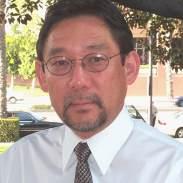12ACWE Keynote Speakers
| Monday, 9:00 a.m. Ronald T. Eguchi |
Tuesday, 8:30 a.m. Clifford F. Mass |
Wednesday, 8:30 a.m. David V. Rosowsky |
Ronald T. Eguchi
President and CEO
ImageCat, Inc.
Hurricanes, Tornados, Floods and other Disasters: A View from Space
link to abstract
Ronald T. Eguchi is President and CEO of ImageCat, Inc., a risk management company specializing in the development and use of advanced technologies for risk assessment and reduction. Mr. Eguchi has over 30 years of experience in risk analysis and risk management studies. He has directed major research and application studies in these areas for government agencies and private industry. He currently serves or has served on several Editorial Boards including the Natural Hazards Review, the Journal on Uncertainties in Engineering Mechanics; and Earthquake Spectra. He is currently a member of the National Research Council’s Disaster Roundtable whose mission it is to identify urgent and important issues related to the understanding and mitigation of natural, technological, and other disasters. He is a past member of the Scientific Advisory Committee of the U.S. Geological Survey, a committee that reports to Congress on recommended research directions for the USGS in the area of earthquake hazard reduction. In 2006, he accepted an ATC Award of Excellence on behalf of the ATC-61 project team for work on An Independent Study to Assess Future Savings from Mitigation Activities that showed that a dollar spent on hazard mitigation saves the nation about $4 in future benefits. He was recently recognized by EERI as the 2008 Distinguished Lecturer where he discussed the topic of “Earthquakes, Hurricanes, and other Disasters: A View from Space.” He was also invited as a keynote speaker to the 14th World Conference on Earthquake Engineering, held in Beijing, China in 2008. He has authored over 250 publications, many of them dealing with the seismic risk of utility lifeline systems and the use of remote sensing technologies for disaster response.
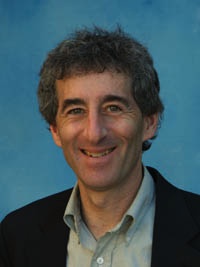
Clifford F. Mass
Department of Atmospheric Sciences
University of Washington
Cliff Mass went to Cornell University for his undergraduate education where he majored in physics. During that time we worked with Astronomer Carl Sagan on a model of the Martian atmosphere and was active in the University Senate.
After Cornell he entered the Ph.D. program at the University of Washington. During the first few summers he worked with climatologist Stephen Schneider on the influence of volcanic eruptions, solar variations, and CO2 on climate. Although his Ph.D. was on African wave disturbances, the forerunners of tropical storms and hurricanes in the Atlantic, he caught the Northwest weather bug as a graduate student and began gathering information on the Puget Sound convergence zone and other local weather features.
Leaving the UW, he joined the faculty of the Meteorology Department at the University of Maryland, where he taught synoptic meteorology and weather prediction and worked on a variety of research topics, from Northwest weather circulations and high-resolution modeling, to the climatic implications of the Mount St. Helens eruption.
When an opening became available at the University of Washington, he moved back to Seattle as an assistant professor in the Department of Atmospheric Sciences. During the next few decades, Cliff and his students have systematically studied the weather of the western U.S., completing over fifty papers on phenomena as varied as orographic precipitation, coastal surges, the Catalina Eddy, and the Puget Sound convergence zone, to onshore pushes, downslope windstorms, and various local gap winds. His group has written numerous papers on storm and frontal structure and evolution across the U.S., including the application of high-resolution modeling. Numerical simulation has been a key tool for his group, which now runs the most extensive local high-resolution prediction system in the United States. For a number of years he has been chief scientist of the Northwest Modeling Consortium, a group that facilitates state-of-the-art prediction over the U.S., and is active in improving the Weather, Research, and Forecasting (WRF) model. Based on a strong interest in improving operational weather prediction, he has written a number of papers examining the strengths and weaknesses of the National Weather Service.
Cliff has been involved in a number of other initiatives, including the acquisition of coastal radar on the Washington coast, and the improvement of K-12 math education. He is the author of the 2008 book "The Weather of the Pacific Northwest" and broadcasts a weekly weather information segment on KPLU, a local public radio station.
Now a full professor, he is a fellow of the American Meteorological Society, an editor of a number of meteorological journals, and a member of a number of National Academy committees. He is currently chair of the Science Applications Board of the U.S. Developmental Testbed Center and a member of the WRF Research Applications Board.
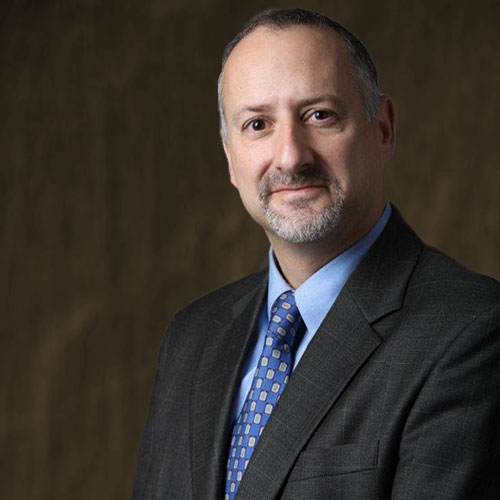
David V. Rosowsky
Professor, Dean of Engineering
Rensselaer Polytechnic Institute
Keynote Talk: Event-based models for hurricane hazard characterization: What can we do and where can we go?
David V. Rosowsky, Ph.D., P.E., F.ASCE was appointed the 15th Dean of Engineering at Rensselaer in 2009. From 2004-2009, Dr. Rosowsky served as Head of the Zachry Department of Civil Engineering at Texas A&M University, where he also held the A.P. and Florence Wiley Chair in Civil Engineering. Since 1990, Dr. Rosowsky has conducted research in the areas of structural reliability, performance of wood structural systems, design for natural hazards, stochastic modeling of structural and environmental loads, and probability-based codified design.
His current research addresses three topics: (1) behavior of the built environment subject to natural hazards, (2) modeling and analysis of load effects on buildings and other structures with particular emphasis on complex environmental phenomena, and (3) performance-based engineering for design, post-disaster condition assessment, and loss estimation studies. He currently serves on the Editorial Board of the journal Structural Safety and is a past editorial board member of the ASCE Journal of Infrastructure Systems, the ASCE Journal of Structural Engineering and the journal Natural Hazards Review.
Dr. Rosowsky has authored or co-authored more than 130 papers in peer-reviewed journals and more than 150 papers appearing in conference proceedings. A recognized expert in the field of structural reliability, he has been invited to present his research work around the world including invited lecturers in France, Italy, Switzerland, Canada, Japan, Australia and New Zealand. He has supervised more than 20 Masters and Doctoral students. He is the recipient of the ASCE Walter L. Huber Research Prize, the T.K. Hseih Award from the Institution of Civil Engineers (UK), and the ASCE Norman Medal.
Dr. Rosowsky maintains an active research program in wind and earthquake engineering and continues to supervise graduate students and post-doctoral researchers. He is a member of numerous editorial boards, national technical committees, is a registered Professional Engineer, and holds the rank of Fellow of the American Society of Civil Engineers.
Conference Hosts: 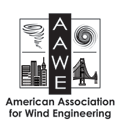
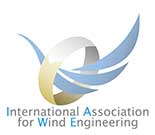
12ACWE Sponsors


![]()
![]()
![]()
![]()

